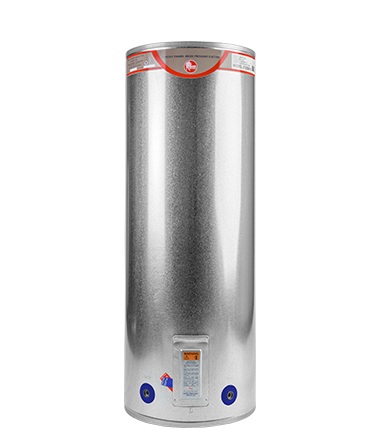Gas Hot Water Heater - Reliable and Efficient Water Heating
- Get link
- X
- Other Apps
Gas hot water heaters are a popular choice for many households and businesses due to their reliability, energy efficiency, and ability to provide hot water on demand. Powered by natural gas or propane, these systems are designed to heat water quickly and efficiently, making them an excellent solution for both small and large-scale applications.
This article explores the workings, benefits, types, and considerations when choosing a gas hot water heater to help you make an informed decision.
How Gas Hot Water Heaters Work
Gas water heaters use a burner located at the bottom of the tank to heat water. When hot water is used, cold water enters the tank through a dip tube, and the burner ignites to heat the incoming water. The heated water rises to the top of the tank and is distributed to your taps or appliances as needed.
For tankless gas water heaters, water passes through a heat exchanger, where the burner heats it instantly, providing a continuous supply of hot water without the need for storage.
Types of Gas Hot Water Heaters
1. Storage Tank Gas Water Heaters
- These models feature a tank that stores a fixed amount of hot water.
- Ideal for homes with moderate to high water usage.
- They continuously maintain the water’s temperature, even when not in use.
2. Tankless Gas Water Heaters
- Heat water on demand, eliminating the need for a storage tank.
- Compact and energy-efficient, making them a great choice for space-saving installations.
- Suitable for households with varying hot water demands.
3. Condensing Gas Water Heaters
- These systems use exhaust gases to preheat incoming water, improving efficiency.
- Ideal for those seeking eco-friendly and energy-saving options.
4. Combination Gas Water Heaters
- Provide both space heating and hot water in a single system.
- Best suited for homes looking to consolidate heating appliances.
Benefits of Gas Hot Water Heaters
1. Fast Heating
Gas heaters are known for their quick heating capabilities, providing hot water almost instantly.
2. Energy Efficiency
Natural gas is generally more affordable than electricity, making gas water heaters a cost-effective option over time.
3. Continuous Supply
Tankless models ensure an unlimited hot water supply, catering to large households or businesses with high water demands.
4. Reliability
Gas water heaters remain functional during power outages, unlike electric systems.
5. Environmental Impact
Modern gas heaters are designed to minimize emissions and operate efficiently, reducing their carbon footprint.
Choosing the Right Gas Hot Water Heater
When selecting a gas hot water heater, consider the following factors:
1. Water Usage
- Determine your household or business’s average hot water needs.
- Larger families or businesses may benefit from high-capacity storage tanks or tankless models.
2. Energy Efficiency
- Look for units with high energy efficiency ratings.
- ENERGY STAR-certified models are an excellent choice for long-term savings.
3. Installation Space
- Ensure adequate space for the heater, whether opting for a tank or tankless model.
- Compact tankless systems are ideal for smaller spaces.
4. Budget
- Factor in the cost of the unit, installation, and maintenance.
- While tankless models may have higher upfront costs, they often provide greater savings over time.
5. Venting Requirements
- Gas water heaters require proper ventilation to safely expel combustion gases.
- Consult with a professional to ensure compliance with local regulations.
Maintenance Tips for Gas Hot Water Heaters
To keep your gas hot water heater running efficiently and extend its lifespan:
1. Regular Flushing
- Flush the tank annually to remove sediment buildup, which can reduce efficiency and cause damage.
2. Inspect the Anode Rod
- Check and replace the anode rod if corroded to prevent tank rusting.
3. Clean the Burner
- Ensure the burner is free of debris to maintain optimal heating performance.
4. Check the Ventilation System
- Inspect vents and exhaust pipes for blockages or damage to ensure safe operation.
5. Schedule Professional Servicing
- Regular professional inspections help identify and resolve potential issues before they become major problems.
Gas Hot Water Heater vs. Electric
When deciding between a gas and electric water heater, consider these comparisons:
- Cost: Gas is generally more affordable to operate, but electric units may have lower upfront costs.
- Efficiency: Gas heats water faster, while electric systems are more efficient in converting energy to heat.
- Reliability: Gas water heaters function during power outages, offering a dependable hot water supply.
Conclusion
A gas hot water heater is a reliable, efficient, and cost-effective solution for meeting your hot water needs. With options ranging from traditional storage tanks to modern tankless systems, gas heaters can be tailored to fit various applications and preferences.
By choosing the right type of gas water heater, ensuring proper installation, and maintaining it regularly, you can enjoy a steady supply of hot water while reducing energy costs and environmental impact. Investing in a quality gas hot water heater is a practical step toward enhancing comfort and efficiency in your home or business.
- Get link
- X
- Other Apps




Comments
Post a Comment